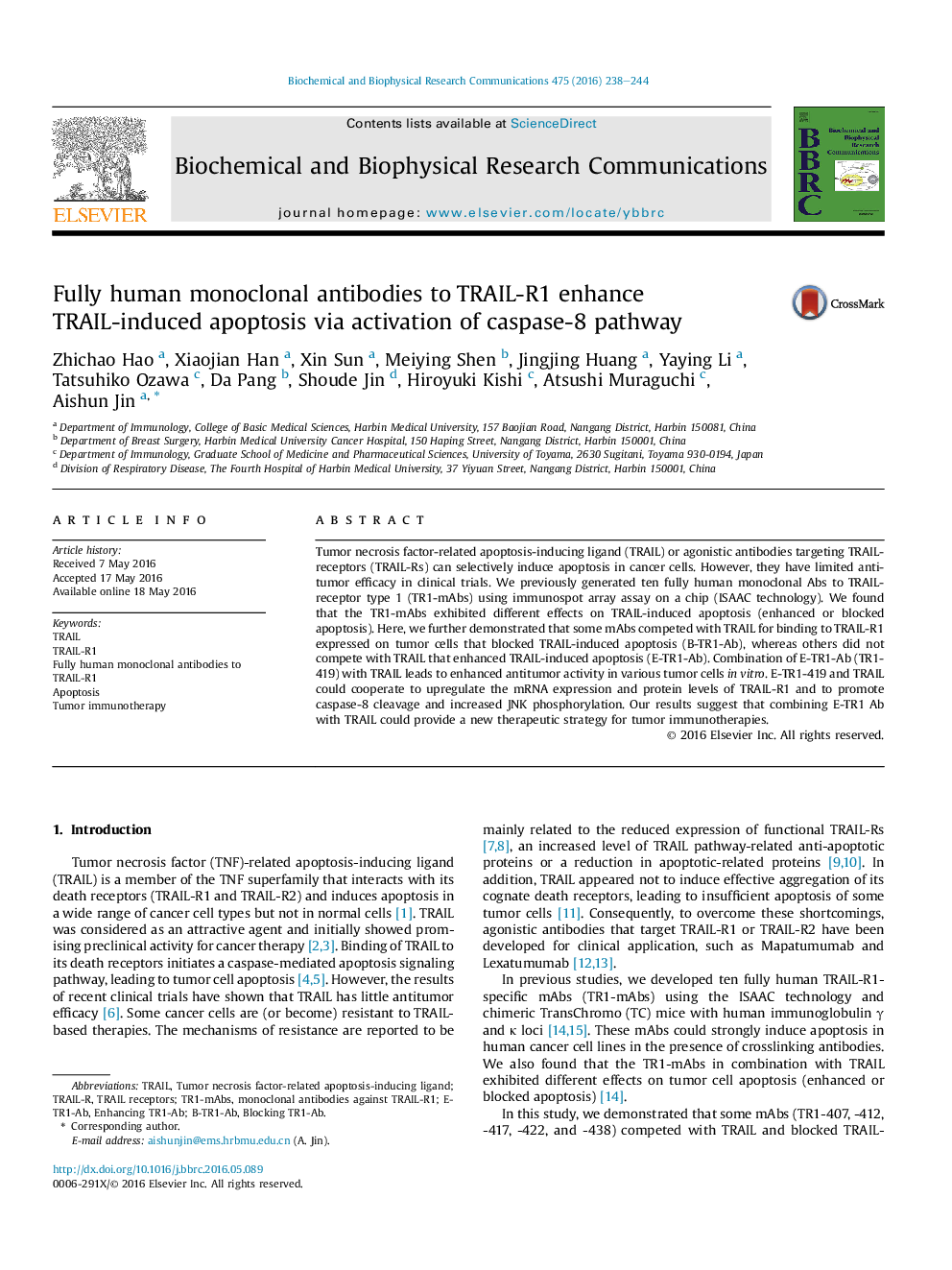| Article ID | Journal | Published Year | Pages | File Type |
|---|---|---|---|---|
| 1927837 | Biochemical and Biophysical Research Communications | 2016 | 7 Pages |
Abstract
Tumor necrosis factor-related apoptosis-inducing ligand (TRAIL) or agonistic antibodies targeting TRAIL-receptors (TRAIL-Rs) can selectively induce apoptosis in cancer cells. However, they have limited antitumor efficacy in clinical trials. We previously generated ten fully human monoclonal Abs to TRAIL-receptor type 1 (TR1-mAbs) using immunospot array assay on a chip (ISAAC technology). We found that the TR1-mAbs exhibited different effects on TRAIL-induced apoptosis (enhanced or blocked apoptosis). Here, we further demonstrated that some mAbs competed with TRAIL for binding to TRAIL-R1 expressed on tumor cells that blocked TRAIL-induced apoptosis (B-TR1-Ab), whereas others did not compete with TRAIL that enhanced TRAIL-induced apoptosis (E-TR1-Ab). Combination of E-TR1-Ab (TR1-419) with TRAIL leads to enhanced antitumor activity in various tumor cells in vitro. E-TR1-419 and TRAIL could cooperate to upregulate the mRNA expression and protein levels of TRAIL-R1 and to promote caspase-8 cleavage and increased JNK phosphorylation. Our results suggest that combining E-TR1 Ab with TRAIL could provide a new therapeutic strategy for tumor immunotherapies.
Keywords
Related Topics
Life Sciences
Biochemistry, Genetics and Molecular Biology
Biochemistry
Authors
Zhichao Hao, Xiaojian Han, Xin Sun, Meiying Shen, Jingjing Huang, Yaying Li, Tatsuhiko Ozawa, Da Pang, Shoude Jin, Hiroyuki Kishi, Atsushi Muraguchi, Aishun Jin,
